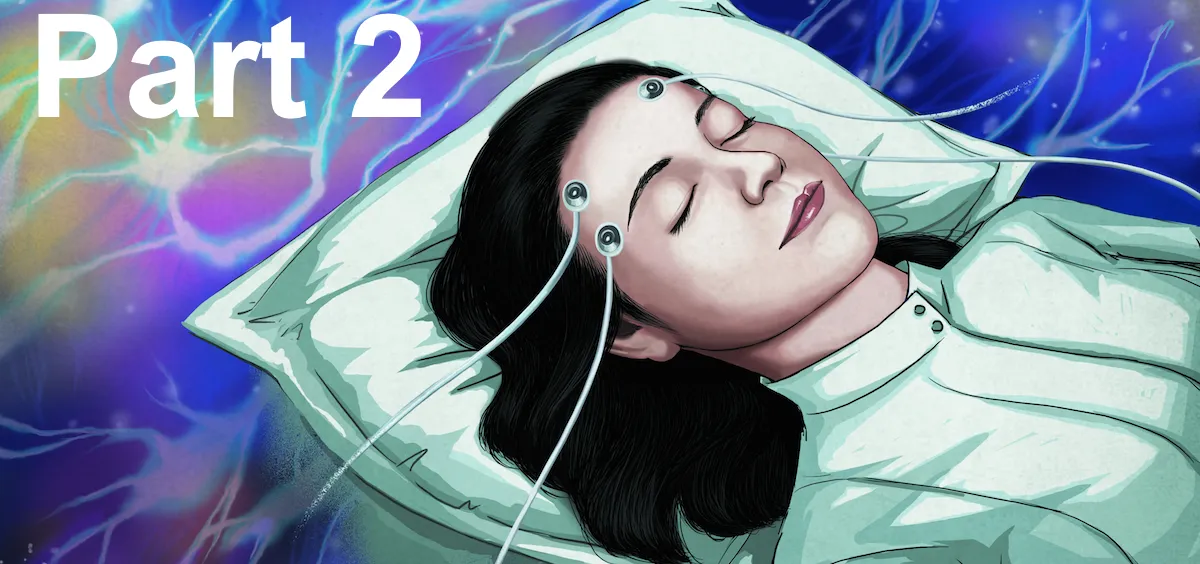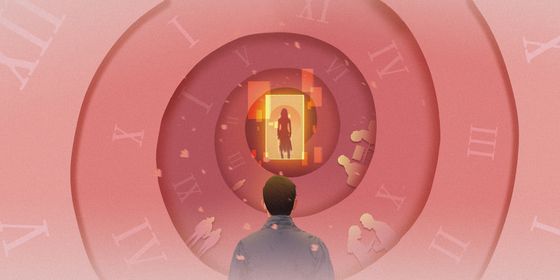In a world of desire, ego can be terminal
The Author: HAO JINGFANG 郝景芳
Winner of the Best Novelette at the 2016 Hugo Awards for her story “Folding Beijing”, Hao Jingfang was the second Chinese writer to win a Hugo after China’s hottest sci-fi author, Liu Cixin. The 32-year-old writer has a bachelor’s degree in physics and a Ph.D. in economics and management, both from Tsinghua University. She currently works in a research institute under the State Council. Hao believes her writing does not belong to a specific genre, and has written fantasy, fairytales, and sci-fi. She has published two novels, an essay collection, and a short story collection.
Only Qi Na and Hanyi were left at the clinic; the others had happily returned home.
Qi Na was a bit unhappy. All women who find themselves engaged in a cold war with a boyfriend are a bit unhappy. She’d decided to not contact him or take his calls, but she still secretly monitored his online activity and regularly changed her own online status; she didn’t believe for a second that he wouldn’t be watching.
She powered up the screens on every piece of furniture in the room—on the table, the filing cabinet, the medicine cabinet—screens lit up everywhere. Colorful webpages were displayed side by side, exaggerated smiles and faces turned upwards which disappeared silently, forming a multi-colored wallpaper. The Network Secretary flitted about looking for traces of Paul’s activity related to Qi Na.
Hanyi went to check on the patients. Qi Na didn’t see the point; they were as they always were, not living but refusing to die. It was a pain to care for them, but Hanyi went at the appointed time every day to check on them. She was the type of person who would clean every last grain of rice out of any bowl you gave her, whose hat and gloves were always in order. Qi Na thought of her as from being a different world.
She wrote: “If depression is protein, who’s going to help me with my digestion?” Qi Na chuckled to herself as she finished writing the sentence and felt a bit better. She held onto the pen as she thought of what to write next.
Hanyi came back. “Come, there’s a problem with Number 21.”
Qi Na didn’t want to move. Head lowered, she held her notebook as she fiddled with a draft. “What possible problem could there be?”
“Come and have a look. I’m afraid the patient might go into shock soon.”
“Ugh, yeah, a big deal, I’m sure.” Qi Na threw the pen forward. “It’s always the same stuff. It’s such a pain.”
“I think we might have to up the intensity,” Hanyi, explained. “You need to come and help me confirm.”
The two of them walked into the hallway. Qi Na set the Network Secretary to vibrate mode, and stuffed the mobile back in her pocket. She did up the buttons on her uniform, revealing the pleasing curves of her body.
There was nobody in the hallway. An empty surgery cart and IV bags lay near the wall, as well as a large bag of medical waste waiting to be taken away. There were small, white lights on either side of the room, which made frightening shapes as they shone upon the encephalographs and pictures.
Qi Na tossed a piece of candy into her mouth as she spoke: “I really don’t get it. Family members bring patients here when there’s really nothing wrong with them. It’s not like they’re going to die, they’d be fine at home.”
Hanyi spoke gently: “You can’t speak like that. It’s normal for people to be a bit overly worried when their close relatives are involved. We should be understanding.”
“Yeah. You’re a living bodhisattva, and I’m a little yakṣa¹.” Qi Na put her hands into the pockets of her uniform as she pranced down the stairs, kicking her feet a bit with each little step.
Hanyi was unfazed: “We have the proper facilities, as well as the ability to provide professional care.”
“Whatever,” Qi Na laughed. “Our lame-ass brainwave machines? In this day and age anyone can buy a couple electrodes, attach them at home, pump themselves up. It’s not like our machines are better.”
“We have our procedures. We can avoid random-generation replication events, so the results are better.”
“Who cares about replication events? Do you think they remember the stories the machine feeds them from day to day? The machine could just feed them 100 yellow ducklings quacking and the result would be the same, I bet.”
The two of them reached the ward. Hanyi stopped, and sighed seriously.
“Look,” Hanyi said. “Some people come here because they’re at the end of their rope. Everyone in the family is afflicted by the same disease. They’re all bedridden, and nobody’s available to take care of anyone else. It’s really sad.”
Qi Na didn’t say anything. Instead, she just stuck out her tongue.
Hanyi seated her glasses with her finger and spoke seriously, like a professor giving a lecture: “This phenomenon is quite serious. Last week I spoke at a conference about it. More and more people are being hospitalized, and it’s starting to constitute a fixed chunk of the population. That alone is serious. As the trend continues, less attention is devoted to one another in real life, which leads to an increasing population of inpatients. It’s a cycle, and it will result, in the end, in everyone being hooked up to machines. You can’t ignore the gravity of the situation. It’s a new kind of social anxiety, and if we don’t dedicate ourselves to acknowledging and researching it, it may increase in seriousness. The book I’ve been working on lately discusses this problem. It’s going to be published soon, and when that happens it’ll be the most detailed record on this specific topic. I applied theories from studies on social anxiety. If you’re interested, I can bring you a copy of the initial draft next week.”
Qi Na purposely looked past Hanyi. “Hey, why is Number 20 sitting up?”
Hanyi turned around quickly. “Ah? What?”
“Oh, he’s lying down again,” said Qi Na.
-Translated by Moy Hau (梅皓)
“The Lonely Ward – Part 1” is a story from our issue, “Climate Change”. To read the entire issue, become a subscriber and receive the full magazine. Alternatively, you can purchase the digital version from the iTunes Store.
Continue on to Part 2.












